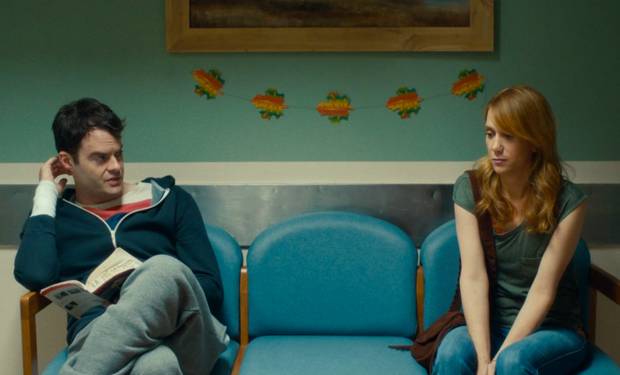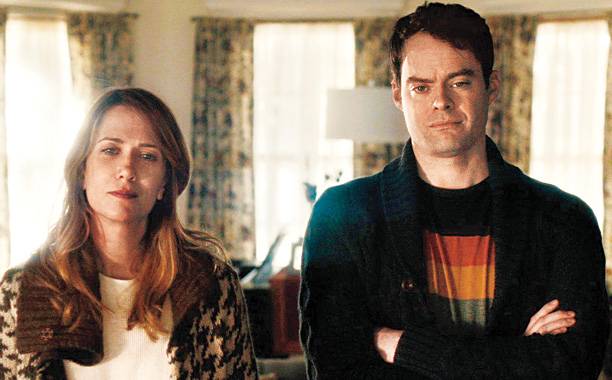
Bill Hader and Kristen Wiig in The Skeleton Twins.
Movie review – The Skeleton Twins
– by Thalia Stopa
If you are fighting off an early onset of Seasonal Affective Disorder, going to see The Skeleton Twins might not be the best way to spend the next grey Vancouver day. That’s not to suggest that you avoid seeing it altogether – quite the opposite actually; I would qualify this movie as a “must-see.” But although its leads might be most recognizable from their costarring roles as cast members of Saturday Night Live (Kristen Wiig and Bill Hader have been regulars since 2005), The Skeleton Twins is an honest and unglamorous movie about depression… that is also humorous.
Wiig and Hader play siblings who lost their father to suicide when they were in their teens, and then their mother to a New Age cult and new family unit. Despite living opposing lives on opposite ends of the U.S. for the last ten years – Wiig is a straight, married dental hygienist living in New York and Hader is a gay, single unemployed actor living in Los Angeles – both are suffering from parallel bouts of depression and suicidal tendencies, unbeknownst to the other. The two are reunited by Hader’s botched suicide attempt, and thus begins their reunion as adults.

The casting of two comedians turns out to be the ingenious solution of tackling such sensitive subject matter in a way that is compassionate and realistic. The siblings don’t drag each other down, or revel in the company of the other’s misery. Instead, our protagonists buoy each other up with their empathy and morbid humor, as well as lots of inebriation and some ’80s karaoke.
The film is directed and written by Craig Johnson in collaboration with co-writer Mark Heyman. Heyman’s involvement comes as little surprise considering the treatment of themes of mental illness in the 2010 movie Black Swan, which he also co-wrote.
In less capable hands, The Skeleton Twins could easily have been the equivalent of a cheesy PSA or a spiralling nose-dive into a pit of despair and gloom. But the film doesn’t dwell on questions of genetics or familial resentment. Instead, it centres on the complex lives and feelings of Wiig and Hader in a sort of late coming-of-age slash early-mid-life crisis scenario that manifests in a head on collision with mental illness.
As someone who has dealt closely with depression, Hollywood tropes in tackling of the subject can be irksome at best. But in The Skeleton Twins there are none of the stereotypical dichotomies of helpless and savior, good and bad, or right and wrong – there isn’t even a single psychiatrist’s office scene. The characters are not handled with kid gloves nor judged for their humanism and self-destructive choices. There is no hidden agenda or strong message, and no neat conclusion. Which is why this is the perfect movie to see with a sibling or close friend on a bright day, followed by a long walk around the seawall and a good conversation.

